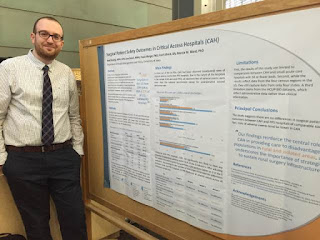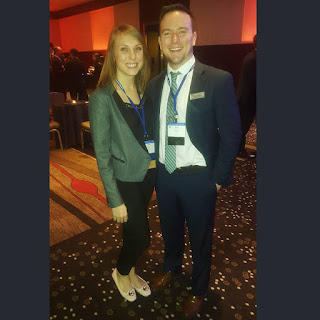Student Poster Presentation - University of Iowa QI Symposium

By: Jordan Brelje On Wednesday, April 6, a group of University of Iowa MHA students presented their poster, “A real-time, customizable, Hazard Vulnerability Analysis tool for use during Hospital Incident Command System activations,” at the fourth annual University of Iowa Quality Improvement Symposium. The poster described a semester-long project that the students (Jordan Brelje, Aaron Horsfield, Anna Saxon and Cory Stetson) have been working on as part of a Hospital Organization and Management course. Students enrolled in the course have the opportunity to engage in meaningful consulting projects for the University of Iowa Hospitals and Clinics (UIHC). The team’s project came about after the need for a real-time hazard analysis tool became evident during a recent hospital incident command system (HICS) exercise. In addressing this need, the team developed an Excel-based tool which allows users to compare the institutional threat of multiple hazards in real time. The real-time...


